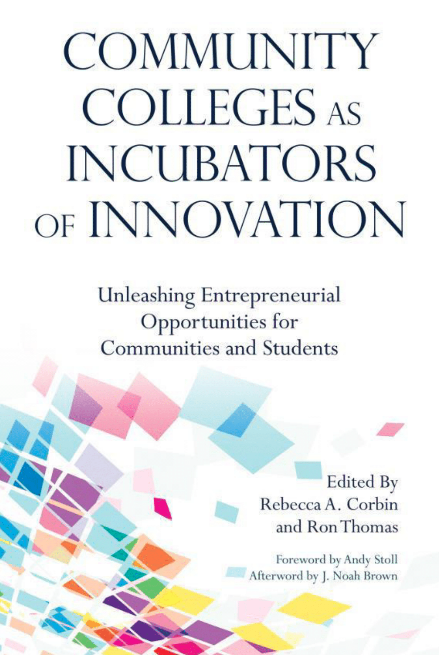Community Colleges Bring Education to More Communities
By Christopher Mullin, Ph.D., and Doan Winkel, Ph.D. (excerpted from NACCE’s new book, Community Colleges as Incubators of Innovation: Unleashing Entrepreneurial Opportunities for Community and Students, 2019, Stylus)
Community college service areas cover every square inch of America, nearly two-thirds of which are in rural communities with fewer than 2,500 full-time equivalent students enrolled. While community college constitutes the final opportunity for advancement at the end of an educational continuum for most local residents, the endpoint is permeable. This permeability – or open-access approach to enrollment – serves as a commitment to the latent potential within students. It allows for businesses to continue growing through human capital development and it allows for communities to reshape themselves when necessary, although this may not be happening enough.
Creating Economic Opportunities
While more Americans are becoming more educated, and with knowledge becoming more specialized, access to occupations remains unequally distributed and the number of new firms are declining. One powerful solution to these problems can come from localized workforce development, and the human capital for the development must be local community colleges. Faced with this situation, it is necessary for community college staff to consider how their institution can create economic activities in their communities through an aggressive workforce development strategy that views entrepreneurial activity as essential to the wellbeing of their students and their community. This can take many forms of business incubators, including applied research centers to help local industry, small business assistance centers, innovation funders, and makerspaces, to name a few.
America’s education system has continuously improved, with a greater number of students graduating from high school and college. With increased educational attainment, its increase varies by a number of factors, some of which are demographic, but of equal importance and receiving lesser discussion is the variability across counties. For example, in Florida, educational attainment rates varied between counties, from 55 percent to 12 percent (Lumina Foundation, Stronger Nation, 2017). Research by labor market economists and others have shown that as one’s educational attainment increases, so does one’s income (Mullin, 2015). We also know that the wage premium for a college degree has also increased (Carnevale & Rose, 2011), and that certain degree programs result in higher post-college wages (Carnevale & Strohl, 2010).
Educational Attainment and Entrepreneurship
A recent study by Levine and Rubinstein (2015) found that entrepreneurs who owned incorporated businesses earned 36 percent more than their salaried counterparts. Another study by Manso (2016) found that individuals who had been self-employed at one point in their career had higher career earning when compared to similar workers who hadn’t. As students are generally attaining greater education degrees, if they learn more about entrepreneurship, and can apply those skills during their career path, it is reasonable to expect they will realize higher career earnings.
We must own and celebrate the positive increase in educational attainment, but also acknowledge that the success we have made in the aggregate is not evenly distributed across all Americans. Therefore, it is educationally and economically imperative to expand our students’ understanding of the range of potential occupations to support the localized creation of businesses that offer a greater range of opportunities.
To learn more, order NACCE’s new book, Community Colleges as Incubators of Innovation to read Christopher Mullin and Doan Winkel’s chapter on “Entrepreneurship and Workforce Development: Makings of a New Synthesis.”
To order, click here.

Christopher Mullin has served as the director of Strong Start to Finish, executive vice chancellor of the Florida College System, assistant vice chancellor for Policy and Research at the State University System of Florida, and program director for Policy Analysis of the American Association of Community Colleges (AACC) in Washington, DC.
Follow Christopher on Twitter.
Doan Winkel is the John J. Kahl, Sr. Chair in Entrepreneurship and director of The Edward M. Muldoon Center for Entrepreneurship at John Carroll University. He is the founder and director of the Entrepreneurship Education Project, which gathers data from nearly 20,000 college students from 400+ universities across 70+ countries to better understand how to teach entrepreneurship.
Follow Doan on Twitter.
